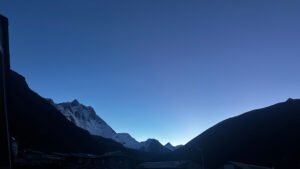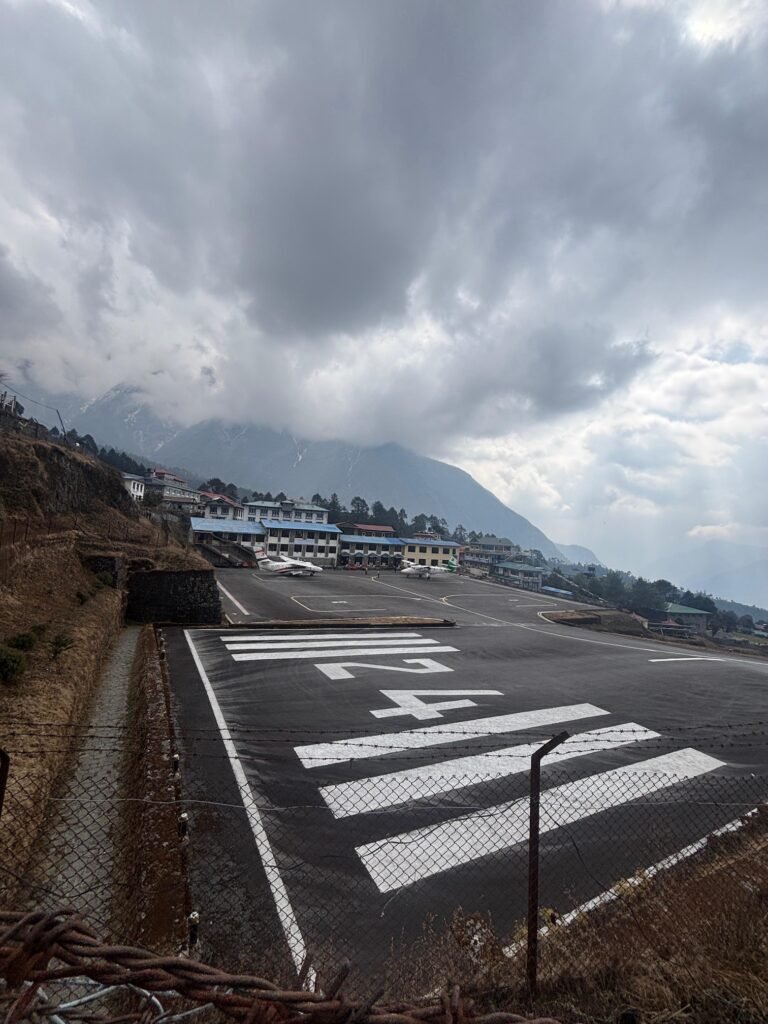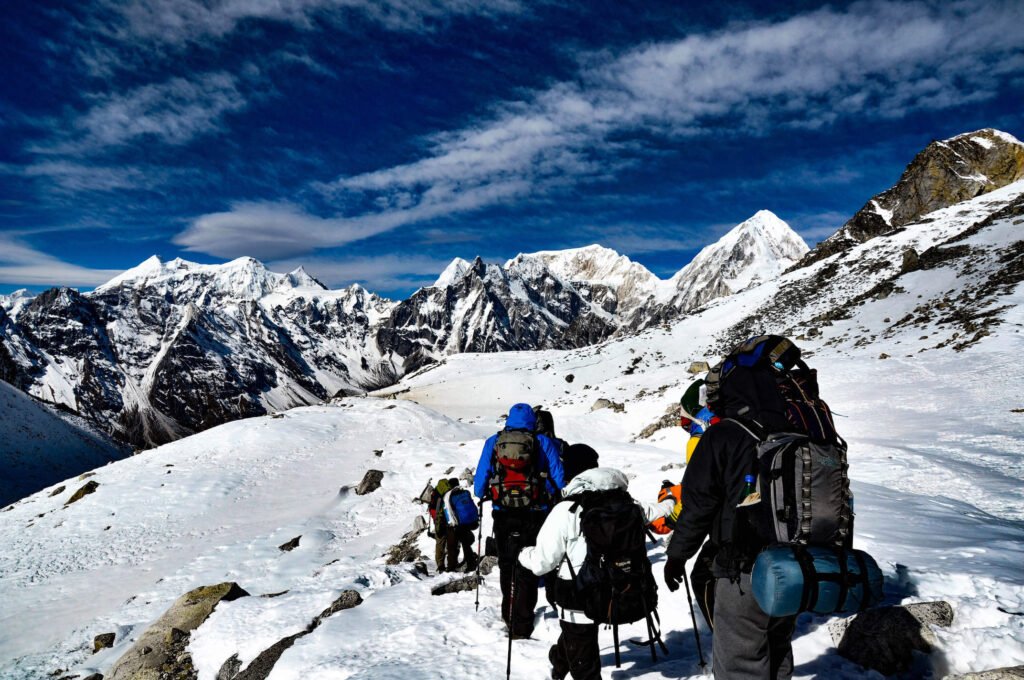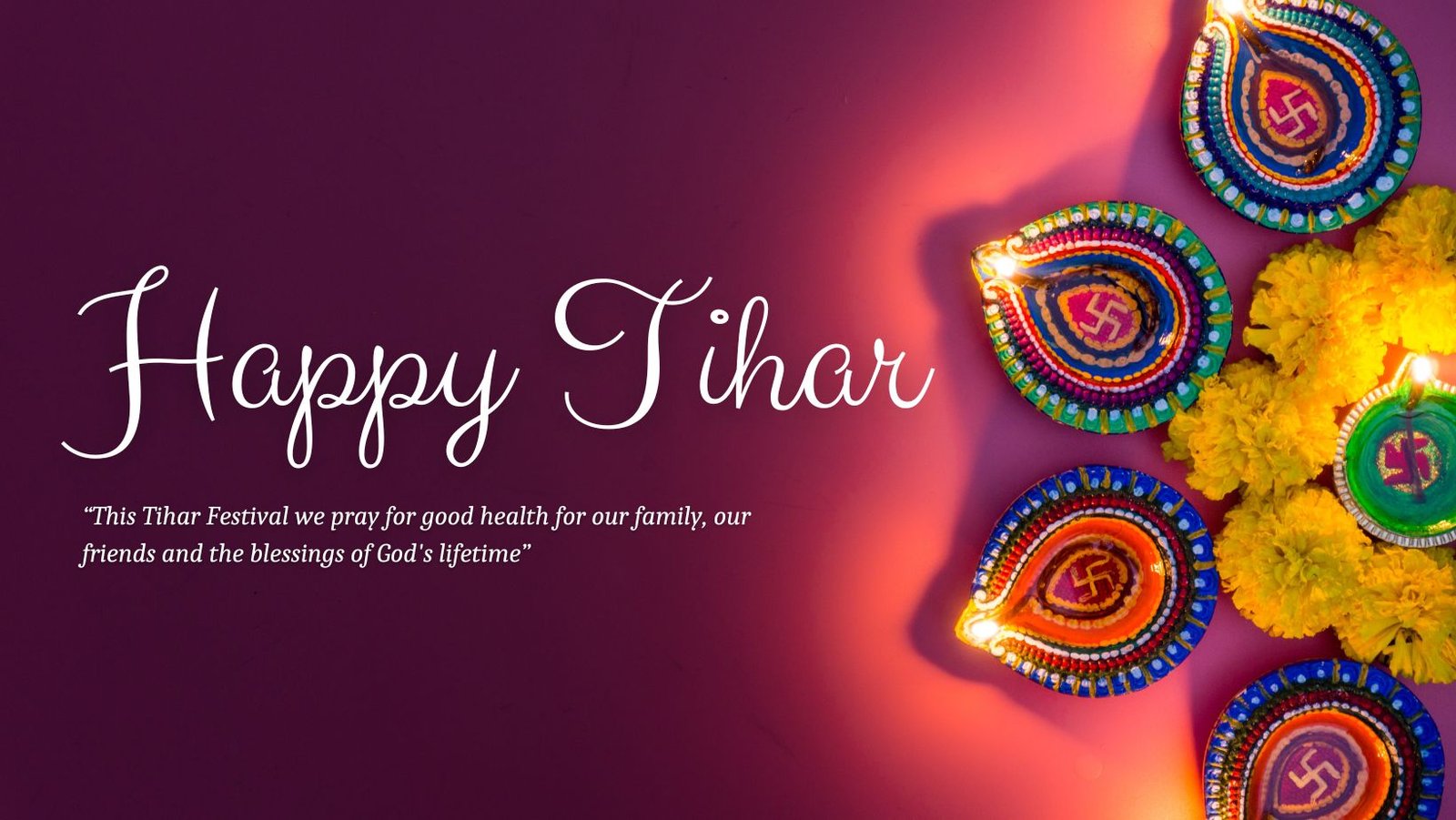- Overview
- Trip Outline
- Trip Includes
- Trip Excludes
- Gallery
- FAQ
- Downloads
Experience the adventure of a lifetime with our 12-day Everest Base Camp trek!
Immerse yourself in the Himalayan culture and witness stunning mountain scenery, ancient forests, and traditional Sherpa villages.
Our experienced guides and porters will lead the way to the base camp of Mount Everest, where you'll witness breathtaking views that will stay with you forever.
This challenging trek is the ultimate bucket-list adventure and promises to leave you with unforgettable memories.
Join us today and embark on this epic journey to the roof of the world!
Follow this link to find Packing List to Everest
This itinerary includes nine days of trekking, with rest days for acclimatization.
Throughout the journey, you'll pass through stunning landscapes and traditional Sherpa villages, with views of Mount Everest and other towering peaks.
Experienced guides and porters lead the trip, and you'll stay in teahouses for a comfortable night's rest.
This 12-day trek is a challenging but rewarding adventure that offers an unforgettable experience in the heart of the Himalayas.
Itineraries
Day 1
Fly from Kathmandu to Lukla, trek to Phakding (2,652m/8,700ft)

A thrilling flight over the Himalayas lands you in Lukla, the gateway to Everest. Begin the trek with a gentle descent through pine forests, crossing suspension bridges over the Dudh Koshi River before reaching Phakding.
- Flight duration: 30 minutes
- Trekking duration: 3-4 hours
- Trekking distance: 8km
- Highlights: Scenic mountain flight, first glimpses of the Everest region, and staying in a cozy teahouse in Phakding.
Day 2
Trek from Phakding to Namche Bazaar (3,440m/11,286ft)

Follow the Dudh Koshi River, crossing high suspension bridges, and enter Sagarmatha National Park. A steep ascent leads to Namche Bazaar, the vibrant Sherpa trading hub.
- Trekking duration: 5-6 hours
- Trekking distance: 11km
- Highlights: Entering the UNESCO-listed Sagarmatha National Park, breathtaking views of Everest and Lhotse, and arriving at the famous Namche Bazaar.
Day 3
Rest day in Namche Bazaar for acclimatization

A day to adjust to the altitude with a short hike to Syangboche or the Everest View Hotel. Explore Namche’s bustling streets, visit museums, and enjoy a relaxing afternoon.
Highlights: Exploring the Sherpa Culture Museum, acclimatization hike to Everest View Hotel (3,880m), and shopping in the lively Namche market.
Day 4
Trek from Namche Bazaar to Tengboche (3,870m/12,694ft)

An undulating trail offers spectacular views of Everest, Ama Dablam, and Thamserku before leading to Tengboche, home to the region’s largest monastery.
- Trekking duration: 5-6 hours
- Trekking distance: 10km
- Highlights: Visiting the Tengboche Monastery for a spiritual experience and enjoying panoramic views of Everest, Lhotse, and Ama Dablam.
Day 5
Trek from Tengboche to Dingboche (4,360m/14,300ft)

Descend through rhododendron forests before crossing the Imja Khola River. Gradual climbs take you past Pangboche and into the wide valley of Dingboche.
- Trekking duration: 5-6 hours
- Trekking distance: 12km
- Highlights: Scenic walk through birch forests, crossing the Imja River, and reaching the picturesque village of Dingboche surrounded by towering peaks.
Day 6
Rest day in Dingboche for acclimatization

A short hike to Nangkartshang Peak (5,083m) offers breathtaking views of Makalu, Cho Oyu, and Lhotse. The day allows the body to adjust to the increasing altitude.
Highlights: Acclimatization hike, stunning views of the Himalayas, and exploring the Sherpa settlement of Dingboche.
Day 7
Trek from Dingboche to Lobuche (4,940m/16,208ft)

A challenging yet rewarding trek past the Thokla Pass and the Everest Memorial, honoring climbers who lost their lives on the mountain.
- Trekking duration: 5-6 hours
- Trekking distance: 11km
- Highlights: Paying respects at the Thokla Pass memorials and enjoying breathtaking views of Nuptse and Pumori as you approach Lobuche
Day 8
Trek from Lobuche to Gorak Shep (5,160m/16,929ft), visit Everest Base Camp (5,364m/17,598ft)

Follow the Khumbu Glacier to reach Gorak Shep, the final stop before Everest Base Camp. Continue to the legendary Everest Base Camp, where climbers prepare for their ascent.
- Trekking duration: 7-8 hours
- Trekking distance: 15km
- Highlights: Standing at Everest Base Camp, exploring the Khumbu Icefall, and taking in the surreal landscapes of the world’s highest peak.
Day 9
Hike to Kalapatthar (5,545m/18,192ft) for sunrise views, trek back to Pheriche (4,280m/14,042ft)

An early morning climb to Kala Patthar rewards you with the best views of Everest. After sunrise, descend past Lobuche to Pheriche.
- Trekking duration: 7-8 hours
- Trekking distance: 15km
- Highlights: Witnessing the golden sunrise over Everest, panoramic views of the Himalayas, and descending to the lower, warmer altitude of Pheriche.
Day 10
Trek from Pheriche to Namche Bazaar (3,440m/11,286ft)
A long descent through the Imja Valley passes Sherpa villages and forests before reaching Namche Bazaar.
- Trekking duration: 6-7 hours
- Trekking distance: 20km
- Highlights: Revisiting the Sherpa villages of Pangboche and Tengboche, and enjoying the comfort of Namche’s vibrant town.
Day 11
Trek from Namche Bazaar to Lukla (2,860m/9,383ft)

The final trekking day follows the familiar route down to Lukla, where you can celebrate your successful trek.
- Trekking duration: 6-7 hours
- Trekking distance: 18km
- Highlights: Crossing the Dudh Koshi River via suspension bridges and experiencing the satisfaction of completing the trek.
Day 12
Fly from Lukla to Kathmandu

A morning flight takes you back to Kathmandu, offering one last aerial view of the Himalayas.
- Flight duration: 30 minutes
- Highlights: Scenic flight over the mountains and the return to Kathmandu’s lively streets.
- All (international and domestic) airport transfers on a tourist vehicle
-
Twin-sharing/double accommodation in a 3-star hotel for two nights in Kathmandu, including breakfast (Private room accommodation can be organized at an extra cost)
-
Twin-sharing guesthouse accommodation during the trek for 11 nights in the Everest Region with attached toilets in Lukla, Phakding & Namche
- All your standard meals during the trek (Breakfast, Lunch, and Dinner), including one hot drink and seasonal fruits
- Experienced, first-aid trained, government licensed, English-speaking Travel Makers South Asia's trekking guide
- Permits for Sagarmatha/Everest National Park and TIMS (Trekkers' Information Management System)
- Porters during the trek for carrying luggage (1 porter for every two clients)
- Wages, accommodation, meals, gear, insurance, and medications for all staff
- Filtered water in the trails
- Round-trip airfare between Kathmandu/Manthali and Lukla
- One duffel/kit bag, trekking map, sun hat, and trip completion certificate
- A farewell dinner on the last night in Nepal
- All administrative expenses and government taxes
- Meals (lunch and dinner) in Kathmandu
- International flight fare and airport departure tax
- Any beverages, including bottled and boiled water
- Travel insurance along with high-altitude emergency evacuation coverage
- Tips to trekking staff and driver
- Nepal Entry Visa (Visa can be acquired easily after you arrive at Tribhuvan International Airport in Kathmandu with a fee of USD 50 for 30 days visa and USD 125 for 90 days visa)
- Personal Trekking gear and equipment
- Any expenses other than the Price Include section
The Everest Base Camp Trek is considered moderately difficult. It requires a good level of fitness and stamina, as you'll be trekking at high altitudes and ascending steep trails. Proper acclimatization and preparation are essential.
The best time for the Everest Base Camp Trek is during the pre-monsoon (spring) season (March to May) and the post-monsoon (autumn) season (September to November). These months offer stable weather conditions, clear skies, and favorable trekking conditions.
The Everest Base Camp Trek typically takes around 12-14 days, including acclimatization days. This allows for a gradual ascent and reduces the risk of altitude sickness.
Altitude sickness, also known as acute mountain sickness (AMS), can occur when ascending to high altitudes too quickly. To prevent AMS, it's important to acclimatize properly by taking rest days, staying hydrated, and ascending gradually. If symptoms worsen, descending to a lower altitude is crucial.
Teahouses or guesthouses are the primary accommodations along the Everest Base Camp Trek. These are basic but comfortable lodges that provide meals and a place to sleep. Facilities may vary, but most teahouses offer twin-sharing rooms with common bathrooms.
You need a Sagarmatha National Park Entry Permit and a Khumbu Pasang Lhamu Rural Municipality Entry Permit. These two permits are mandatory for trekking in the Everest region.
There is no specific age restriction for the Everest Base Camp Trek. However, it's important to consider the physical fitness and endurance of individuals, especially at higher altitudes. Consulting with a healthcare professional is advisable for older or younger trekkers.
Prior trekking experience is not mandatory, but it is recommended. Being physically fit, having experience hiking in varied terrains, and being mentally prepared for the challenges of high-altitude trekking will greatly enhance your experience.
A good level of cardiovascular fitness and stamina is required for the Everest Base Camp Trek. Regular exercise, including cardiovascular workouts and hiking practice, can help prepare your body for the physical demands of the trek.
There are medical clinics and basic emergency facilities available in some villages along the trail. However, it is highly recommended to carry a basic first aid kit and consult with a travel medical professional for personalized advice.
Yes, most teahouses offer charging facilities for a fee. However, the availability of electricity can be limited in some areas, and charging might not be available every day. Carrying spare batteries or a power bank is advisable.
Weather conditions in the Everest region can vary greatly. In the spring and autumn seasons, you can expect mild temperatures during the day, with colder nights at higher altitudes. However, weather conditions can change rapidly, and it's important to be prepared for colder temperatures and occasional rainfall or snowfall.
Yes, there are communication facilities available along the Everest Base Camp trail. Most teahouses have Wi-Fi services, but they may charge a fee for usage. However, the connectivity and speed can be limited, especially at higher altitudes. It's advisable to inform your loved ones that communication may be intermittent during the trek.
Yes, it is possible to hire a guide and porter for the Everest Base Camp Trek. Hiring a guide can provide assistance with navigation, cultural insights, and safety, while a porter can carry your heavy backpack, allowing you to trek with less weight. Hiring them can enhance your trekking experience and support the local community.
The major highlights of the Everest Base Camp Trek include breathtaking views of Mount Everest and other majestic peaks, visiting traditional Sherpa villages, immersing in the Sherpa culture, exploring Buddhist monasteries like Tengboche, trekking through the beautiful Sagarmatha National Park, and standing at Everest Base Camp itself.
Both options are possible. It is feasible to trek independently to Everest Base Camp if you have prior trekking experience, good navigational skills, and are well-prepared. However, joining a guided group trek provides numerous benefits, including a support network, experienced guides, organized logistics, and the opportunity to meet fellow trekkers.
Yes, there are alternative routes and side trips that can be incorporated into the Everest Base Camp Trek. Popular options include adding a trek to Gokyo Lakes, visiting the Everest View Hotel, or taking a detour to the beautiful village of Khumjung. These additions provide additional scenic views and cultural experiences.
Some essential items to pack for the Everest Base Camp Trek include trekking boots, warm clothing layers, a good-quality sleeping bag, a waterproof jacket, gloves, a hat, sunglasses, sunscreen, a water bottle, a headlamp, toiletries, and a first aid kit. It's important to pack light but adequately for changing weather conditions.
The budget for the Everest Base Camp Trek depends on various factors such as the season, accommodation choices, and personal expenses. On average, a budget of around $1,500 to $2,500 USD per person is reasonable to cover permits, food, accommodations, guides/porters (if hired), and miscellaneous expenses.
Respecting the local culture and customs is important during the Everest Base Camp Trek. Some key etiquettes include greeting locals with "Namaste," asking permission before taking photographs, dressing modestly, and respecting religious sites and objects. It's also advisable to follow the guidance of your guide regarding local customs and practices.


















